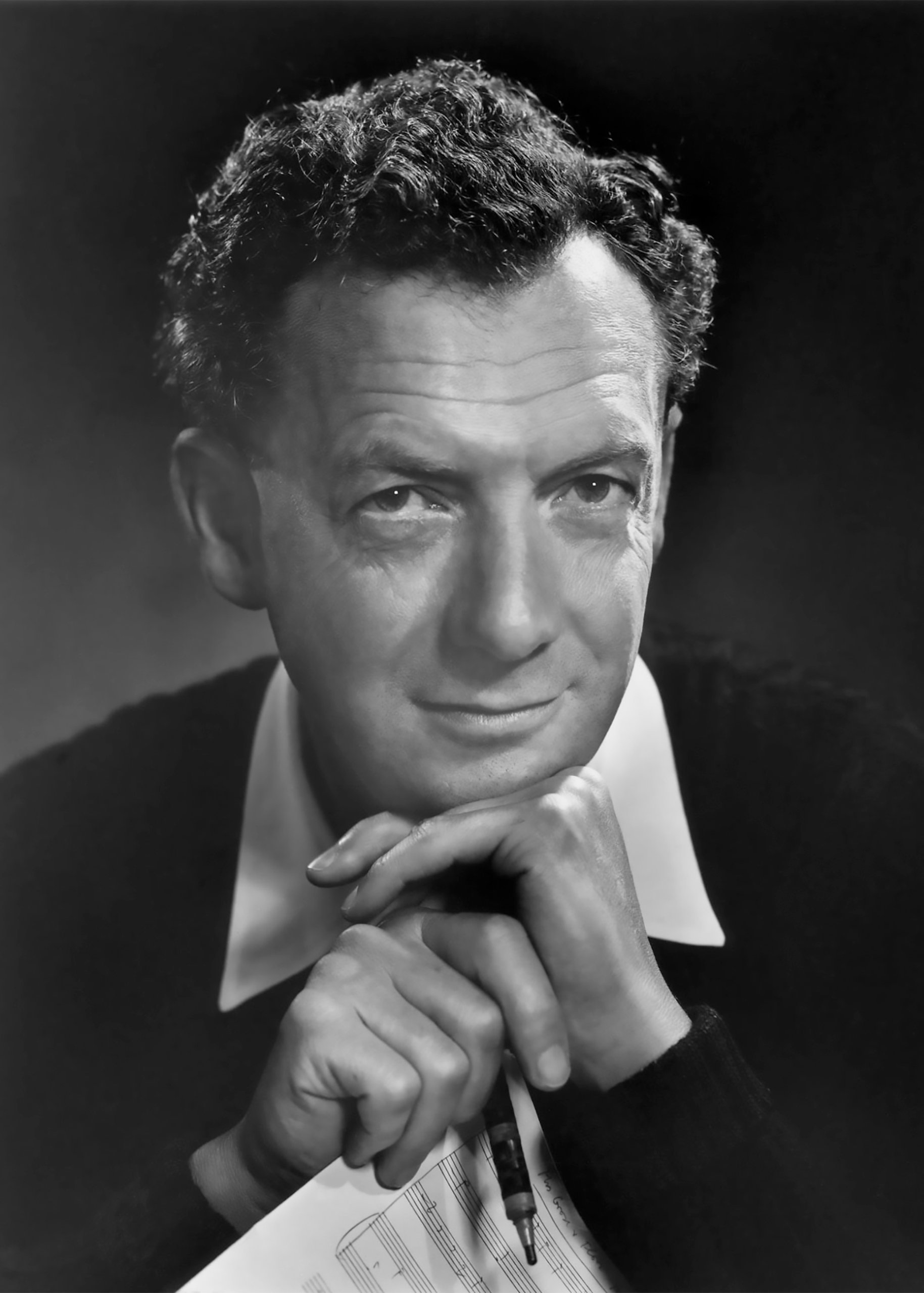Composer | Benjamin Britten

Benjamin Britten remains the most important twentieth century British composer, with a long list of works that include songs, operas, choral works, orchestral works, and chamber music. Born in 1913, he began composing at an early age and at fourteen began studying with the composer Frank Bridge and the pianist Harold Samuels and attending public school before entering the Royal College of Music. In 1935 he met the poet W. H. Auden while working on documentary films and had an international success in 1937 with the Variations on a Theme of Frank Bridge.
In 1939, soon after composing Les Illuminations, Britten emigrated to the United States with Peter Pears, who became his life companion. In addition to writing a symphony and orchestrating Les Sylphides for Ballet Theatre and Rossini pieces for George Balanchine’s American Ballet Caravan (Divertimento, 1941), he wrote his first opera, Paul Bunyan, to a text by Auden. But in 1942 he and Pears returned to Britain, where as contentious objectors they gave recitals while he wrote a second opera, Peter Grimes (1945), the first British opera to enter the international repertory since Purcell’s Dido and Aeneas.
While in 1946 he established The English Opera Group and in 1949 the still flourishing Aldeburgh Festival, Britten continued composing, focusing on vocal and chamber music. His work eventually included a total of ten operas and two more for children, three church parables, three string quartets, the Symphony for Cello and Orchestra, and the War Requiem, commissioned for the consecration of the new Coventry Cathedral in 1962. Britten declined a knighthood, but in 1952 he was made a Companion of Honour and in 1965 was named to the Order of Merit. Then, shortly before his death in 1976, he became the first musician to be created a life peer.